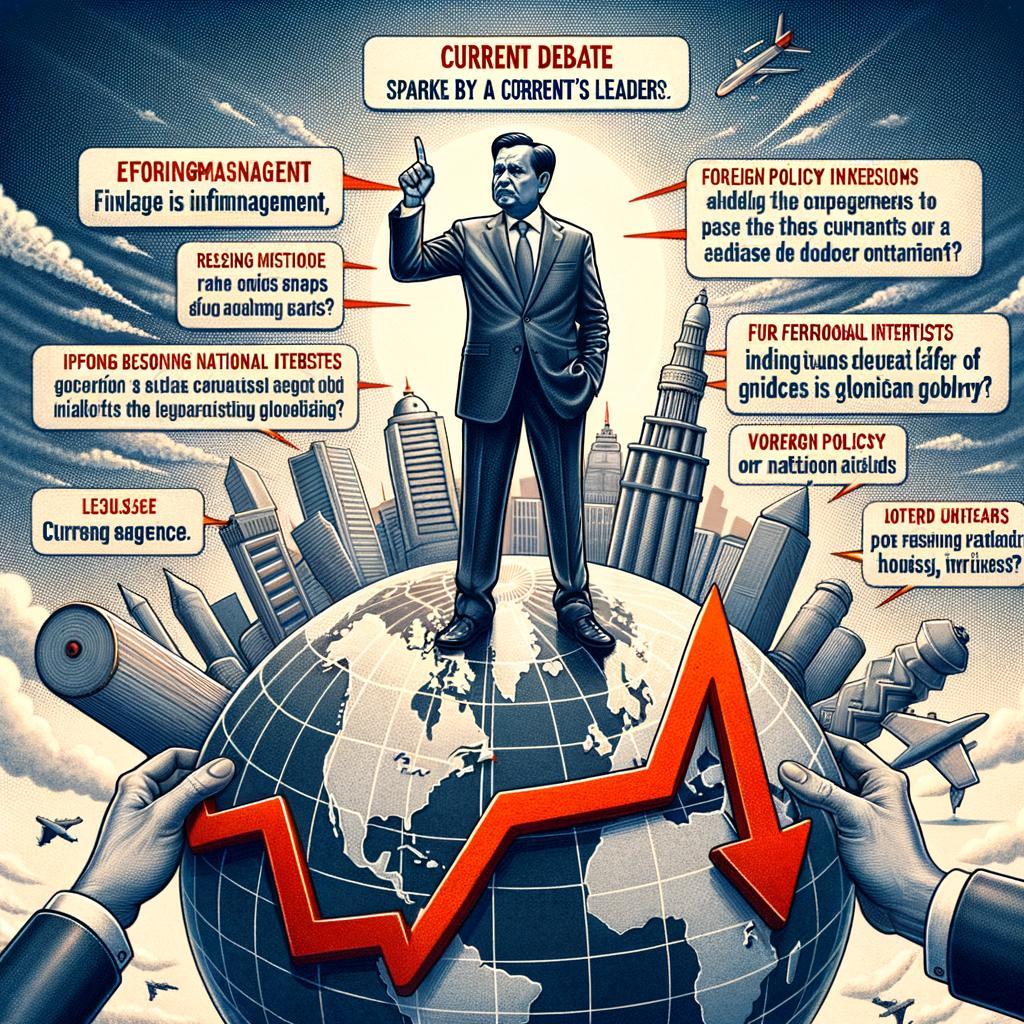In recent developments, the political landscape has been shaken as former President Donald Trump vocally critiques the policies of current President Joe Biden, igniting a national debate that resonates deeply across party lines. Trump’s sharp commentary has brought attention to a range of issues, including economic turmoil and shifts in foreign policy, raising questions about the effectiveness of the Biden administration and its impact on America’s standing in the world.
In this article, we delve into Trump’s assertions—the core of which challenge the effectiveness of Biden’s governance amidst rising inflation, surging energy prices, and escalating geopolitical tensions. He portrays these developments as a reflection of failing leadership, arguing that Biden’s policies have not only undermined economic stability but have also compromised national security. By spotlighting these concerns, Trump seeks to reframe the discourse around government accountability and underscore the significant distinctions between conservative principles and liberal strategies.
For conservatives, Trump’s critiques underscore a critical narrative: the necessity of fiscal responsibility, a robust defense framework, and energy independence. His ability to galvanize grassroots support reinforces his influence within the Republican party, highlighting a yearning among voters for a return to what they view as principled leadership.
As we analyze the implications of this ongoing critique, it becomes evident that the repercussions could extend far beyond mere rhetoric, shaping the electoral landscape for the upcoming elections. Voters are now left to navigate the contrasting visions presented by Trump and Biden, with issues of governance, competence, and ideological commitments at the forefront of the national conversation.
Ultimately, as Trump confronts Biden’s policy record, the ripple effects may significantly impact the Republican party’s strategy and unity as it heads into the 2024 elections. Embracing this critical discourse could be pivotal—not just for partisan gain, but for the broader trajectory of American policy and governance. The stakes have never been higher, and the outcome of this debate may well define the nation’s future.
Trump’s critique of Biden’s policies has ignited a flame within the Republican base, bringing to light critical issues that resonate with a wide array of American voters. Key points of his argument include:
- Economic Mismanagement: He highlights soaring inflation rates and rising energy costs, attributing them to Biden’s approach of excessive spending and regulatory overreach.
- Weak Foreign Policy: Trump underscores perceived weaknesses in American foreign relations, particularly concerning adversaries like China and Russia, arguing that Biden’s leadership has emboldened foes on the global stage.
This narrative not only serves as a rallying cry for conservatives but also challenges Democratic governance, asserting that a return to conservative principles is essential to restore national prosperity and security. By framing the debate around tangible issues such as fiscal responsibility and American sovereignty, Trump aims to galvanize support among voters disillusioned with the current administration, effectively positioning the GOP for a stronger electoral future.
| Issue | Trump’s Assertion | Biden’s Policy Impact |
|---|---|---|
| Inflation | Soaring rates affecting everyday Americans | Higher costs for goods and services |
| Energy Prices | Increased costs for families and businesses | Dependence on foreign oil |
| Foreign Relations | Perceived weakness inviting aggression | Challenges from global adversaries |
Wrapping Up
As we navigate this contentious political landscape, the implications of Trump’s criticisms of Biden’s policies extend far beyond mere rhetoric. They serve as a catalyst for national discourse, forcing voters to confront the realities of governance and the choices before them in the upcoming elections. With each assertion Trump makes, he not only highlights perceived shortcomings of the current administration but also reinvigorates key conservative tenets that prioritize economic stability, national security, and energy independence.
As the Republican party gears up for the 2024 elections, capitalizing on this moment could prove crucial. By uniting around the principles that resonate with a broad swath of the electorate, party leaders can transform this critical national debate into a rallying cry for change—a change that emphasizes competence over ideology, and results over promises.
In this pivotal moment, both parties must remain attuned to the sentiments of the American public. The ongoing dialogue surrounding Biden’s policies and Trump’s critiques will undoubtedly shape the political arena in the coming months. For voters, this is an opportunity to reflect on their priorities and make informed decisions that will steer the direction of the nation. The question remains: will Trump’s call for accountability inspire a shift towards conservative ideals, or will it solidify a defense of the status quo? The answer lies in the collective voice of the electorate as we move closer to a consequential election year.
